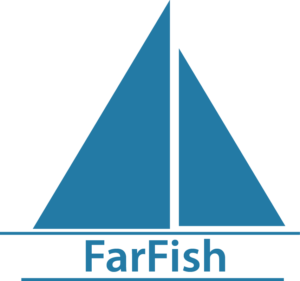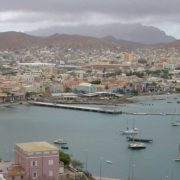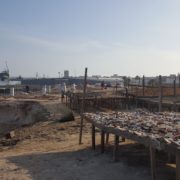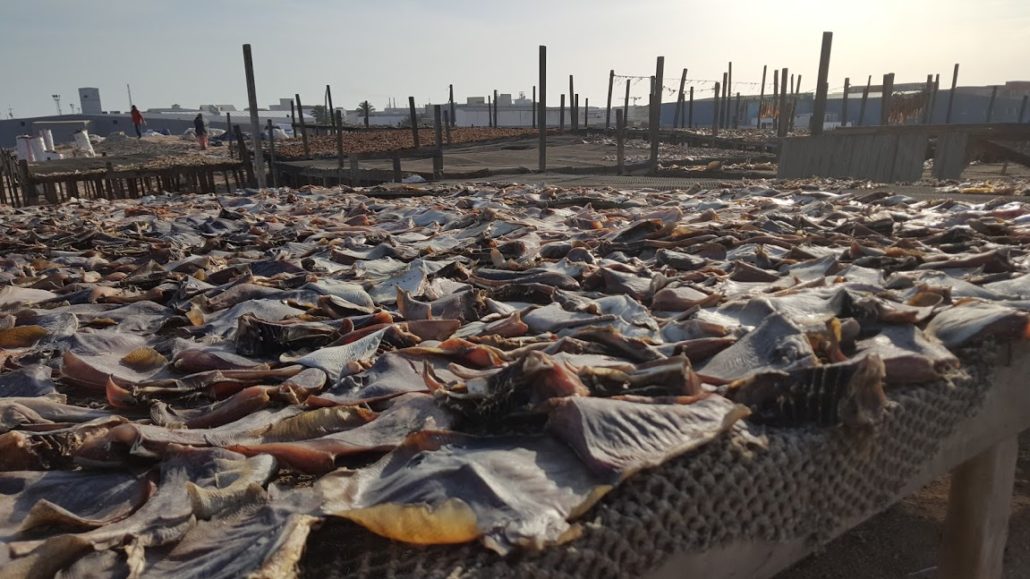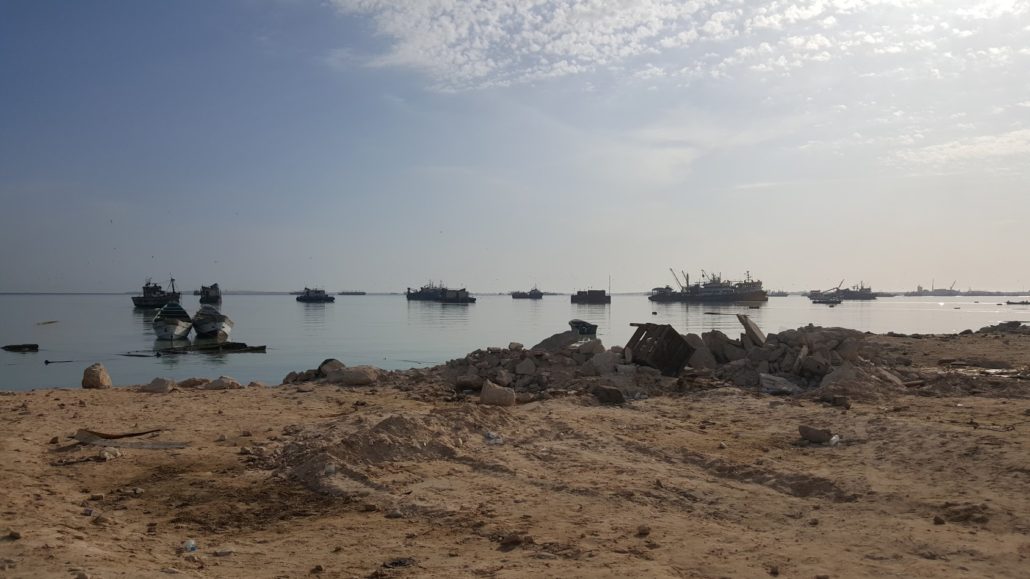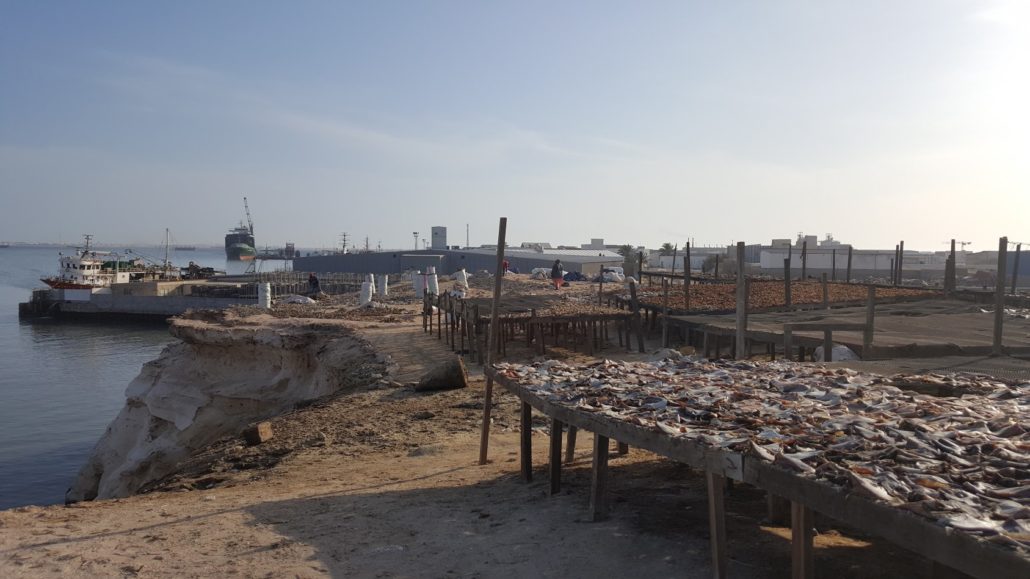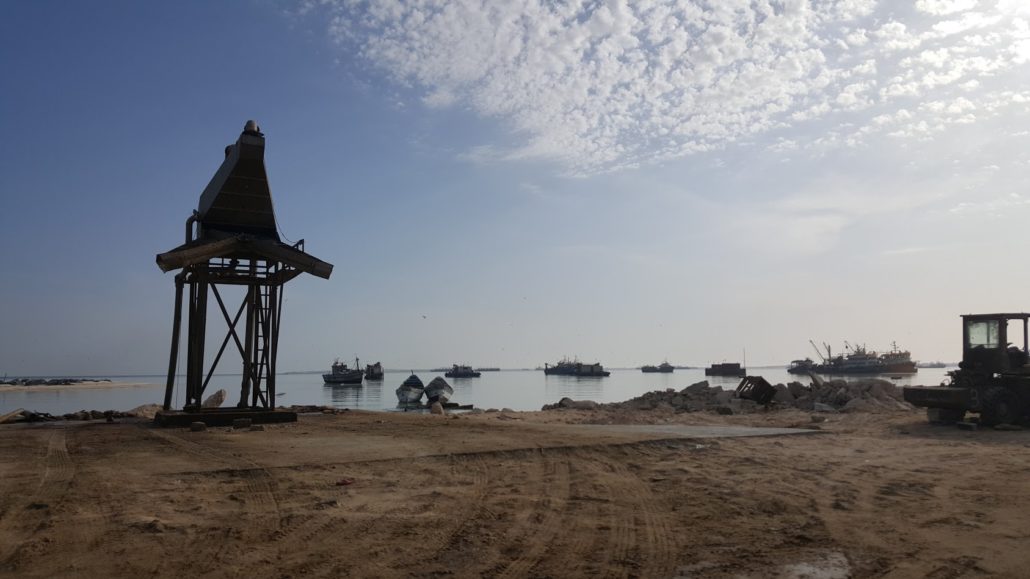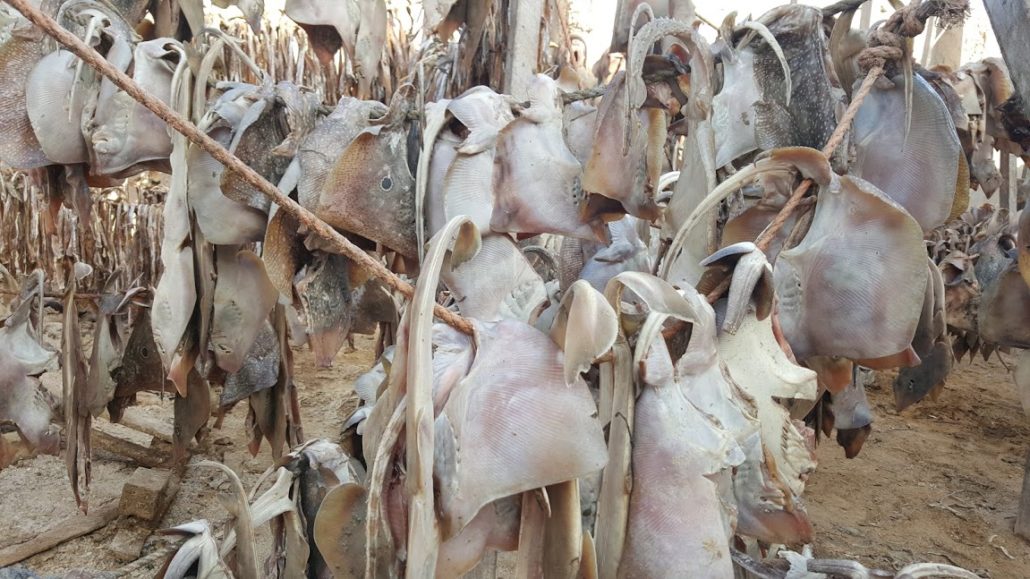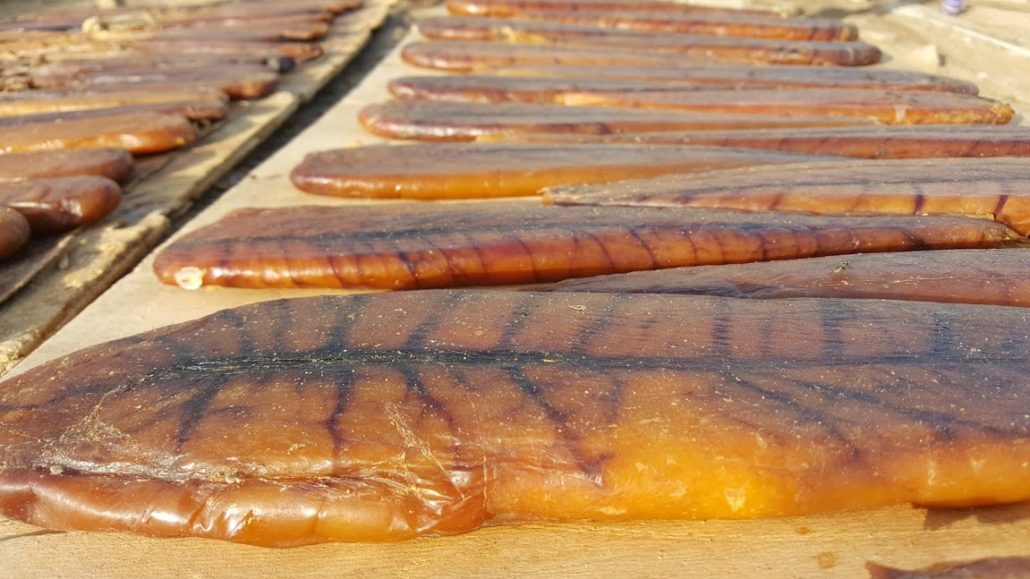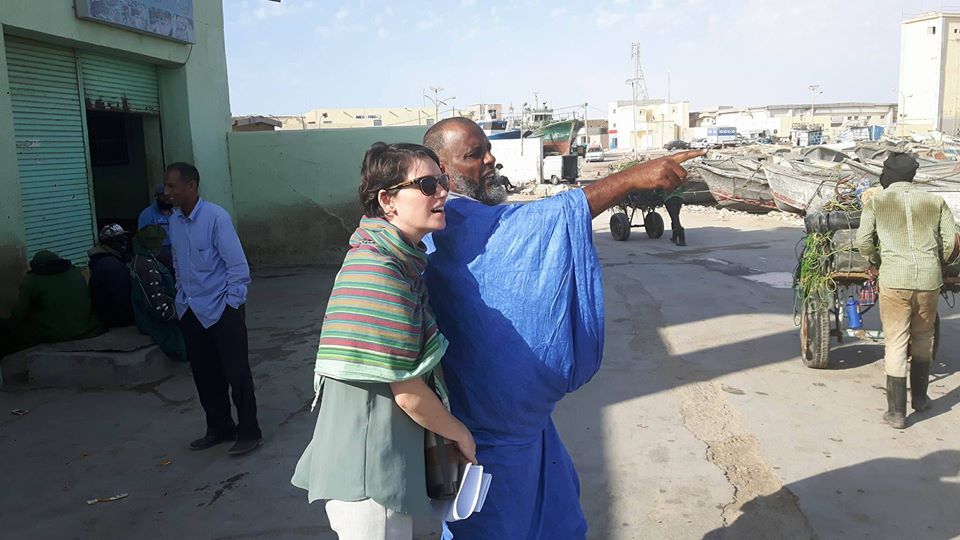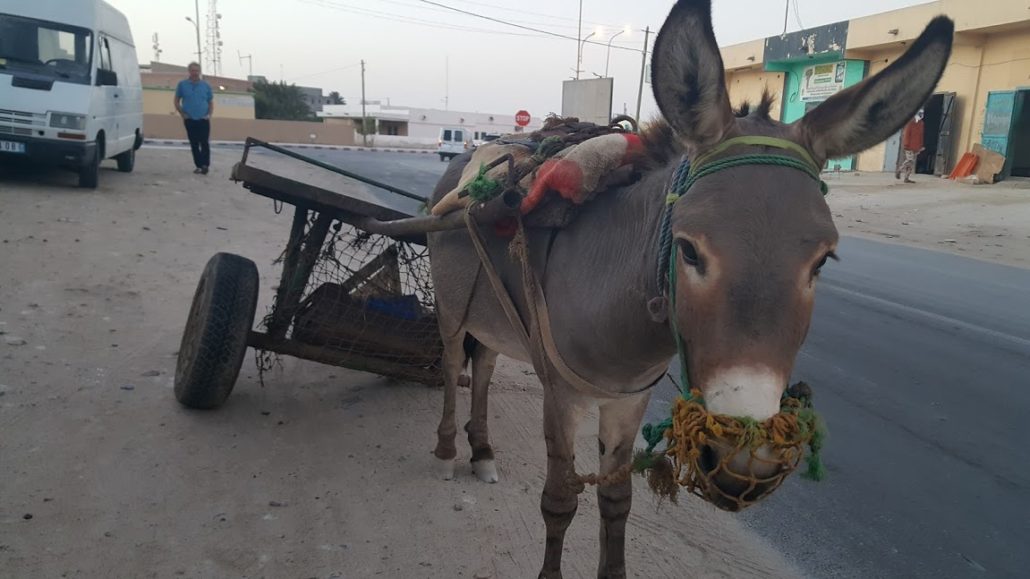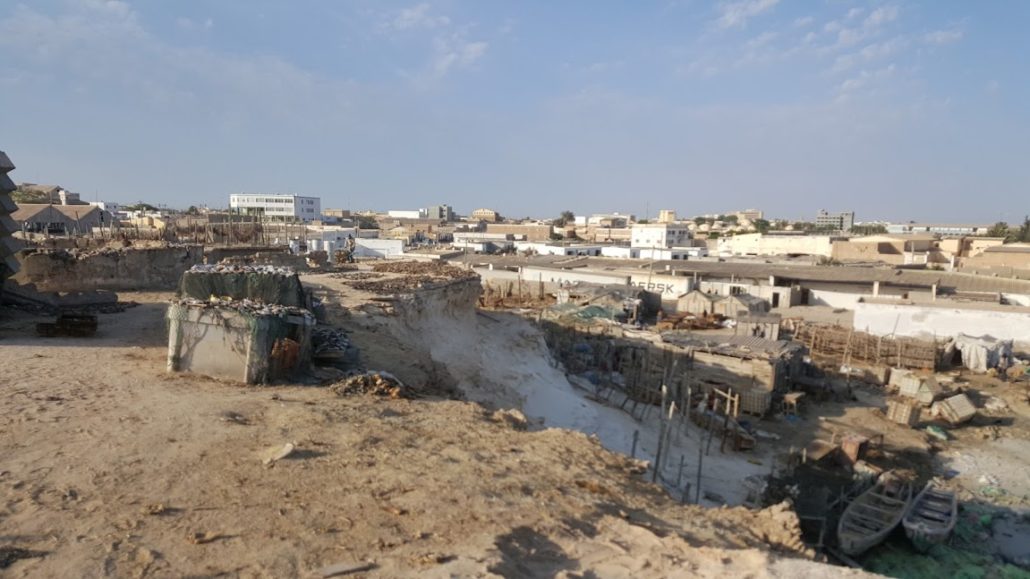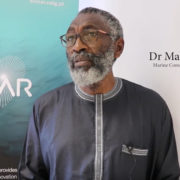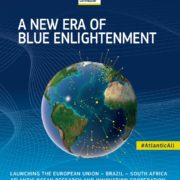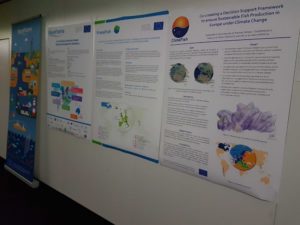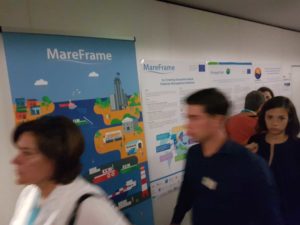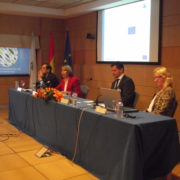Last November, I had the great privilege to visit Mauritania for the first time. I was there to conduct a training needs assessment in connection with the FarFish project. Our plan included a week of meetings with scientists and administrators at IMROP (Institut Mauritanien De Recherches Océanographiques Et De Pêches), who are partners in the FarFish work. Over the course of our discussions with IMROP staff, and through visits to processing facilities and landing sites, we gained valuable insight to the development of fisheries in Mauritania and how FarFish may contribute to the sustainable use of the resources.
The IMROP offices are located just outside the town of Nouadhibou. The town sits on a peninsula in the north of the country. A rough line down the peninsula marks the border between Mauritania and the disputed territory of Western Sahara. A brief, bumpy ride through the dessert and off the main road leads to the IMROP campus, which consists of a collection of buildings, offices and laboratories right next to the ocean. Behind the walls of the compound are trees and lush greenery, which makes the place feel like an oasis in an otherwise barren sandy desert.
The days in Mauritania were spent at the IMROP facilities learning about the work that goes on there, and how it gets done. As I sipped the sweet tea and struggled to remember my high school French, the IMROP scientists took us though the major developments in Mauritanian fishing in recent years, and the efforts the institution has made to keep up. Fishing is a huge industry in Mauritania, and IMROP has made considerable investment in its scientists, sending many of them abroad for doctoral studies in recent years. A 2012 policy to extend the Exclusive Economic Zone (EEZ) has led to significant shifts in the structure of the fisheries, which has impacted life for Mauritanian and foreign operators.
One afternoon, we took a drive to an industrial part of Nouadhibou, where a recent boom in fishmeal processing is evidenced by a long road of new buildings all dedicated to producing fishmeal. The view of the government is that this is a step on the road towards producing more fish for human consumption. On the streets of Nouadhibou, it is easy to see the role the fishing industry plays in the daily life of the city. The mixing currents off the coast of Mauritania form a rich upwelling system, the restaurants of Nouadhibou are a diverse mix of people from North Africa, West Africa, Asia and Europe.
My favourite part of the visit to Mauritania was seeing an artisanal landing site. Our guide was an IMROP data collector, who was friendly, knowledgeable, and eager to share his expertise. He showed us an artisanal port in Nouadhibou, full of boats unloading their catches. We toured a building that serves as a market for larger and more valuable artisanal catch, as well as acres and acres of drying areas for fish, sharks, skates, and roe that was to be sold at regional markets.
Mary Frances Davidson
UNU-FTP and Work Package 7 leader in FarFish
